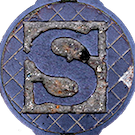Interdisciplinary Models
| Interdisciplinary Models | |
|---|---|
| Description | How do we define minimal information models tuned for synthesis that can interoperate across various disciplines? |
| Related Topics | Interoperability |
| Discord Channel | #interdisciplinary-models |
| Facilitator | Wayne Lutters |
| Members | Paul Itoi, Elianna DeSota, Leo Ware, Konrad Hinsen, James Howison, Wayne Lutters, Peter Murray-Rust |
What
How do we define minimal information models tuned for synthesis that can interoperate across various disciplines?
Concrete problem expressed by Peter-Murray Rust here: https://discord.com/channels/1029514961782849607/1040214388554084372/1040299259930611833: "The idea of Hypothesis testing is common in some disciplines, unknown in others. For example chemical synthesis or materials science is "can we make X?" and many sciences are exploratory - what can we see with a new telescope, plants in Antarctica, etc. You have to design your project but I suspect Hypothesis doesn't come into it."
And to a certain extent, the issue of representing/discussing the discourse of computational research (e.g., model parameters), discussed by Konrad Hinsen here: https://discord.com/channels/1029514961782849607/1038988750677606432/1039576903838859326
This connects also with Peter-Murray Rust's work on Semantic Climate (semantifying the IPCC report).
- see discussion here: https://discord.com/channels/1029514961782849607/1040057721044598788/1040060670907002973
- and here: https://discord.com/channels/1029514961782849607/1033091746139230238/1040226423346040853
And also connects to emerging discussions around interoperability and Surfacing/managing/resolving disagreements in ontologies/terms/federation
Initial discussion
Matthew, Peter, Wayne, James, Ellie, Leo
Projects discussed:
- Scraping literature in geosciences to spatially map out contributions http://globe.umbc.edu/ - Materials Genome Initiative mentioned: infrastructure well-supported but still siloed - OPTIMADE: common API format between existing materials databases
"grassroot tech assemblage can work at scale. "Shoddy" now works."
"need to flourish long enough to been seen by other disciplines"
"So: how do we work in a way that others can learn from in future" -- without being discouraged from starting new things
Reaching plateau of open data --- metrics on who is using and what using for
Similar challenges in enterprise: what data do we have within an org, and who is using it? https://data.world/ vs more public initiatives like https://coleridgeinitiative.org/
Discovering and forming communities of practice around datasets -- how does one person's use leave traces that others can discover? How do we align the challenges across time (ie my experience when I was grappling with a specific column in a dataset, aligned with someone doing just that a year later).
Academic model of competition rubs against open science --- both in sunk time and possessiveness of data
Open notebook science
Domain differences between contributing individual data points vs entire datasets
Can grassroots emulate giant centralisation within industrial monoliths
Identifying key questions:
- Which solutions have worked in other domains?
- What are the differences between (ontological, socio-political, economical) domains that lend themselves to different solutions?
- Extending the concept of "discipline" to e.g., cataloguing human infrastructure (cities, roads etc), "Discipline as a search across a reasonably well defined search space"
- Alignment of primitives --- example of plants in expressed different locales and the effect on local climate Possible outcomes of this group
- Compendium of practices in different fields
- Collecting ideas from other attendees from disciplines within the workshop in a survey
